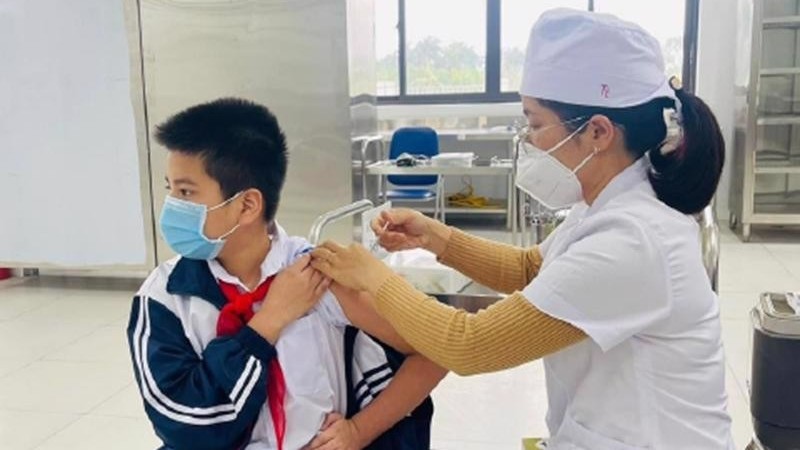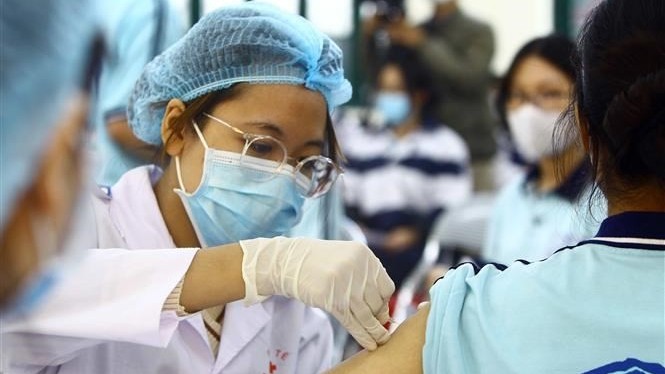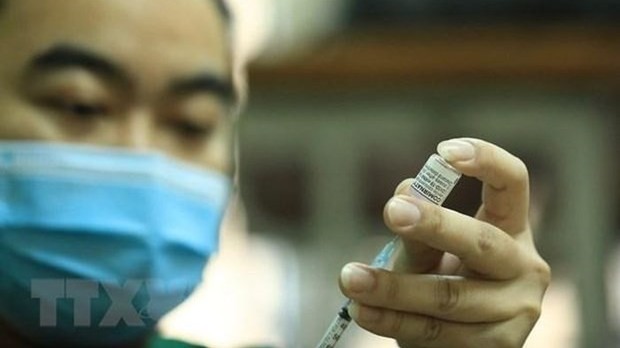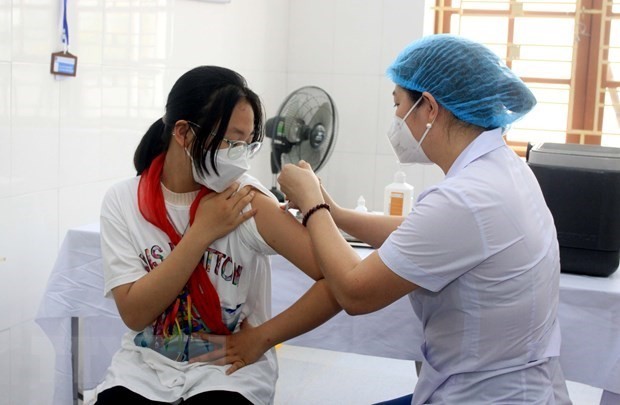
Two million doses of COVID-19 vaccines through the COVAX Facility arrive in Viet Nam
Latest
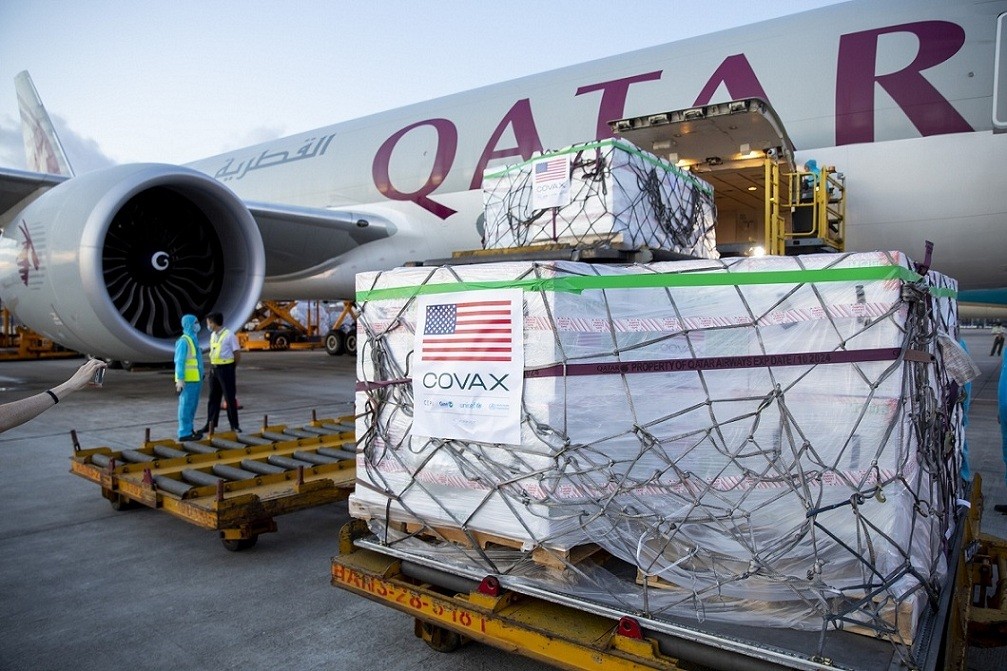 |
| More than 2 million doses of COVID-19 Moderna vaccine supplied by the US Government through the COVAX Facility arrive in Viet Nam. (Source: UNICEF) |
Speaking at a ceremony marking the arrival, Charge d’Affaires, a.i., Christopher Klein, said “The shipment gives us hope that there is an end in sight to our fight against COVID-19. It gives us hope that we will be able to return to our normal lives.”
Viet Nam has successfully managed the response to the COVID-19 pandemic since 2020. However, due to supply constraints globally, the vaccination rates are still low, with about 4 percent of the population vaccinated to date while the number of infections have been rising sharply in the last few weeks.
“The UN welcomes the first United States Government donation of COVID-19 vaccines via COVAX’s dose-sharing mechanism which arrived in Viet Nam” today said Kamal Malhotra, the UN Resident Coordinator in Viet Nam.
“The clearest pathway out of the pandemic is equitable access to vaccination for healthcare workers and priority groups such as the elderly and those with co-morbidities in every country. Dose donations are an immediate and urgent way to address this. We continue to call on well-supplied countries to donate doses now to protect those most at risk as soon as possible”
The United States is committed to working with partners across the globe to end the public health and economic effects of this pandemic. Through USAID, the United States has contributed $2 billion to Gavi, the Vaccine Alliance, to support the purchase and delivery of COVID-19 vaccines to 92 low- and middle- income countries, and we plan to commit another $2 billion by 2022, making the United States the largest financial donor to COVAX.
This contribution to COVAX is supporting equitable access to COVID-19 vaccines for the world’s most vulnerable and at-risk populations, including frontline health care workers.
In Viet Nam, in addition to this vaccine donation, the United States has contributed over $17.7 million in COVID-19 related assistance to Viet Nam since the start of the pandemic.
In addition to today’s shipment, Viet Nam has previously received 2,493,200 doses of AstraZeneca vaccine via the COVAX Facility. The COVAX Facility is co-led by the World Health Organization (WHO), Coalition for Epidemic Preparedness and Innovations (CEPI), GAVI - the Vaccine Alliance, and UNICEF as a key delivery partner.
Since the arrival of the first shipment of vaccines from the COVAX Facility in early April, close to four million COVID-19 vaccines have been administered in Viet Nam.
The additional vaccines will help the Ministry of Health to expand coverage and reach more people from priority groups, contributing to attaining the country’s target of vaccinating more than 70 per cent of population by the end of the first quarter of 2022 .
While the continuous arrival of the COVID-19 vaccines through the COVAX Facility is encouraging, it will take some time for every priority group to be vaccinated. Thus, it is essential to continue 5K practices to reduce virus transmission: wear face masks, wash hands regularly, practice physical distancing, stop gathering and fill out health declaration.




